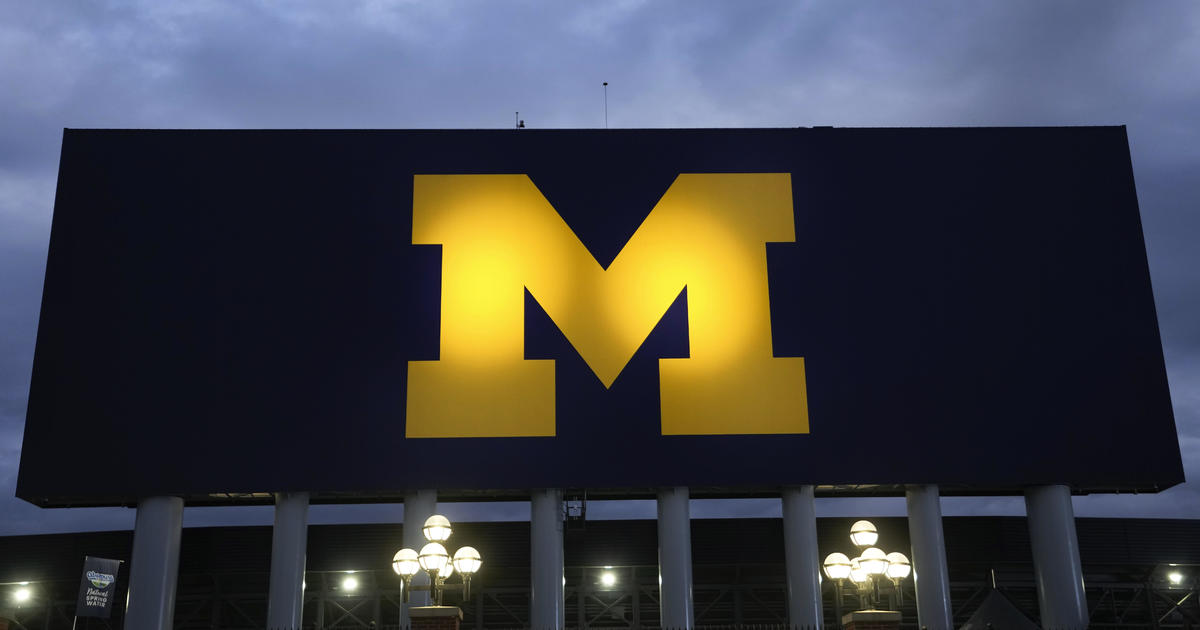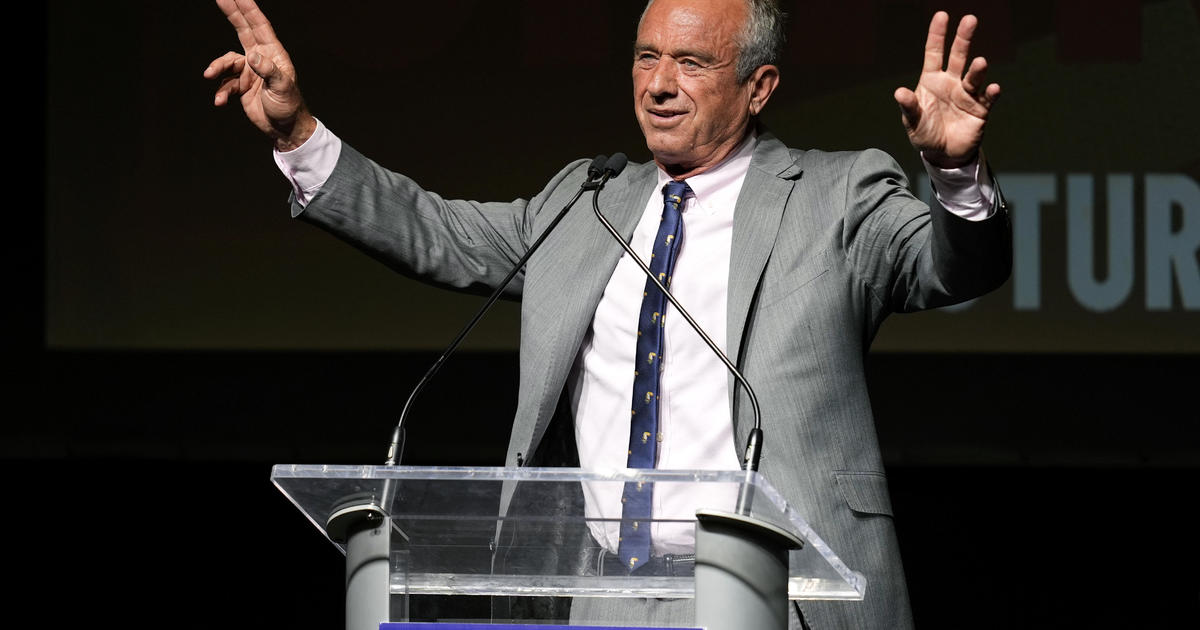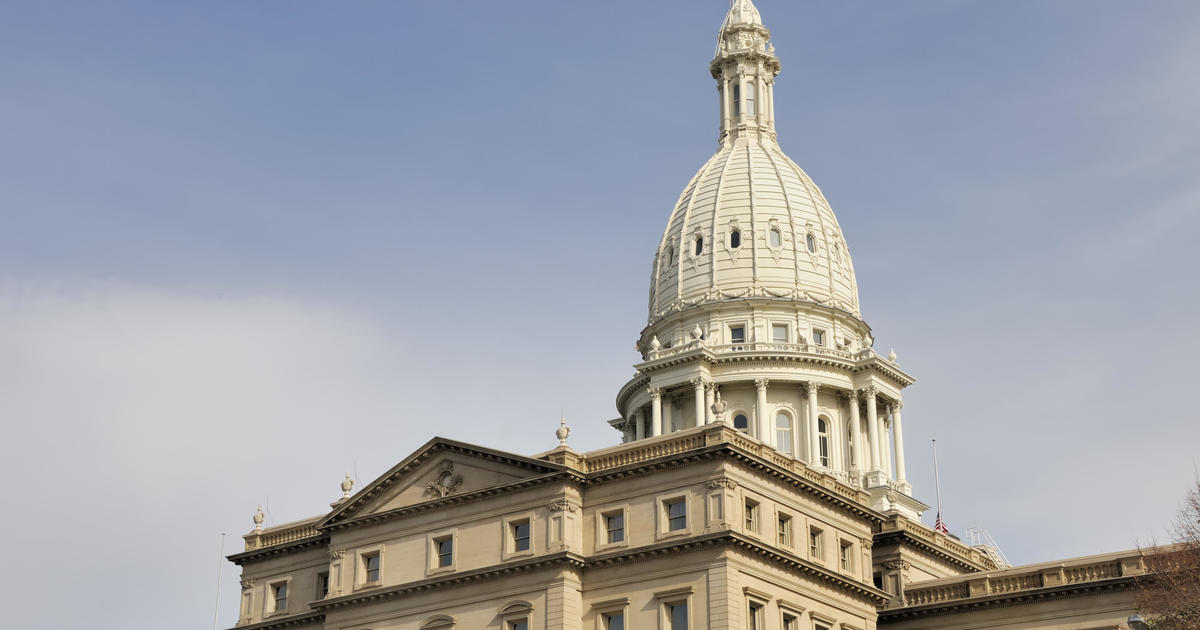UM's Coleman Touts UM Research Strength
ANN ARBOR -- University of Michigan president Mary Sue Coleman hit numerous highlights of the school's research and academic efforts Tuesday at her seventh annual Leadership Breakfast.
Of course, when you have a research budget of $1.27 billion, and programs that can lure medical researchers from Harvard and run satellite networks for NASA, you have a lot of highlights from which to choose.
"No public university in the world invests more in research, and it is research that is more relevant than ever," Coleman told the gathering of more than 100 in the spectacular sixth-floor Colloquium meeting room of the Ross School of Business.
The efforts Coleman described included a $150 million satellite network that will help the government predict the intensity of hurricanes, a $9 million effort to strengthen Great Lakes restoration, a new medical research institute, an auto research effort to cut car crashes 80 percent, and a rapidly growing entrepreneurship to turn faculty discoveries into Michigan businesses and jobs.
Here are the highlights:
* A new University of Michigan Water Center will be established with $9 million, including a $4.5 million, three-year grant from the Fred A. and Barbara M. Erb Family Foundation. UM scientists and their partners across the region will use research and collaboration to improve Great Lakes restoration projects. During its first three years, the center will focus on identifying and filling critical science gaps in the four focus areas of the Obama administration's Great Lakes Restoration Initiative: removing toxic contamination and restoring regions of environmental degradation known as areas of concern; combating invasive species; protecting and restoring wildlife and habitat; and ridding nearshore waters of polluted runoff. The UM Water Center will be administered by the Graham Sustainability Institute and will involve faculty and students from across the university. A portion of the initial funding will be used to hire three prominent Great Lakes scientists, including Tom Nalepa and Gary Fahnenstiel, who joined UM from the National Oceanic and Atmospheric Administration's Great Lakes Environmental Research Laboratory in Ann Arbor. Said Coleman: "The Great Lakes hold one-fifth of the world's freshwater. One-fifth. Compromise their health and integrity, and the damage will be felt far beyond our shores."
*UM's Atmospheric, Oceanic and Space Sciences department and principal investigator Chris Ruf will run The Cyclone Global Navigation Satellite System, or CYGNSS, under a five-year, $151.7 million grant from NASA. Eight microsatellites will launch together in 2017 on a single rocket, then deploy in low Earth orbit. The satellites will study the reflection of signals from GPS satellites as they bounce off the ocean surface, and from those signals deduce the height of ocean waves under a hurricane -- something that's now impossible to do because observers can't see under a hurricane. The project's goal is to measure the intensity of hurricane waves before the storms hit shore, improving hurricane forecasting.
* UM's School of Music, Theatre and Dance has received an $8 million gift from William K. and Delores S. Brehm to renovate and expand one of the school's principal North Campus buildings, the Earl V. Moore Building. The Brehms' gift is a crucial contribution toward the total $23 million cost of renovating and expanding the building, which was built in 1964 and designed by Eero Saarinaen. Included in the plans are a new rehearsal hall designed to accommodate large instrumental ensembles, renovation of the existing rehearsal hall and McIntosh Theatre, new practice rooms, classrooms and faculty offices, and a new lecture hall, entrance and lobby.
* Coleman announced a new annual fellowship that commemorates one of its most illustrious graduates, Raoul Wallenberg, who rescued tens of thousands of Jews from the Holocaust during World War II. The Wallenberg Fellowship, among the largest for an undergraduate, gives a graduating senior $25,000 to carry out independent explorations, projects or activities anywhere in the world. The grant will be awarded to a senior who demonstrates exceptional promise, character, accomplishment and capacity for public service. The student will also have to propose a creative and thoughtful project that will develop a capacity for reflective and humane engagement with the world. Wallenberg was a Swedish national who graduated in 1935 from the College of Architecture. He became a Swedish diplomat and was sent on a rescue mission in 1944 to Budapest, Hungary at the request of Jewish organizations and the American War Refugee Board. Over the course of six months, Wallenberg issued thousands of protective passports and placed thousands more in safe houses throughout the besieged city. He confronted Hugarian and German forces to secure the release of Jews whom he claimed were under Swedish protection, saving more than 80,000 lives.
* Coleman noted that UM is the first public university in Coursera, the massive online learning community. Said Coleman: "Michigan faculty are teaching six classes, with a seventh planned for January. Professor Gautam Kaul's introductory finance course alone attracted a staggering 133,000 students. These courses are free, and they give us a way to connect with new students, whether in Michigan or Macedonia. Coursera fits neatly with our public mission of sharing knowledge. We are also optimistic that it will help transform our classroom pedagogy as well."
* Coleman also noted the university's $22 million federal Department of Transportation grant to equip vehicles with communication gear so they can talk to each other about road and traffic conditions. Said Coleman: "This technology is alerting drivers to trouble on the road. It may well lead to an 80 percent reduction in crashes. That's impact."
* And Coleman said that "the Michigan passion for entrepreneurship is flourishing. Our scientists are declaring record numbers of inventions -- more than one a day this past year." And she said that the UM business incubator at its North Campus Research Complex, the former Pfizer Inc. research campus in Ann Arbor, "is officially full with 18 startup companies built on UM research discoveries. We thought the Accelerator would take three years to fill, and it took less than half that." And, she said, "Faculty are beating down the doors to participate in MCubed, our new funding program that connects researchers across campus. We are committing $15 million to some 250 team projects that are admittedly high-risk, but also, potentially, very rewarding."
In response to a question from the audience, Coleman wouldn't take an official position on any of the state ballot issues on the Nov. 6 ballot, and simply encouraged people to vote.



